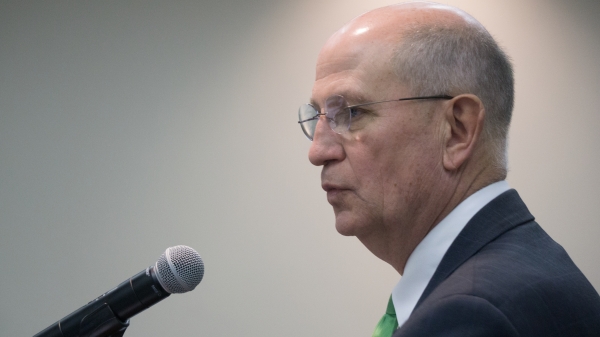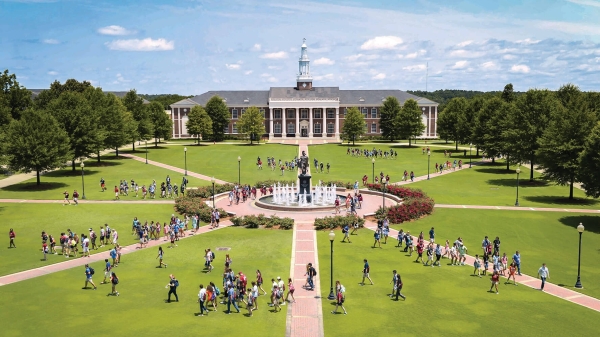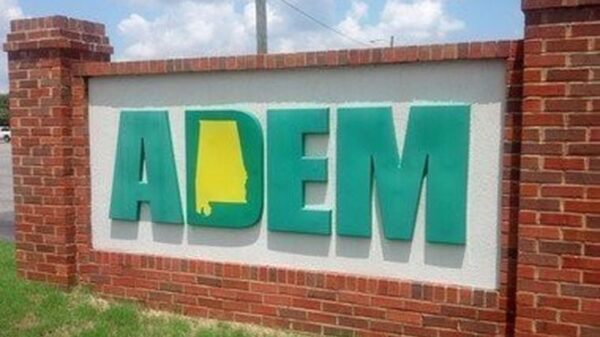The rise of AI technology has brought with it an increased demand for massive data centers—specialized facilities built for the high-performance computing needs that machine learning relies on. While these facilities are necessary for sustaining the rapid growth of AI technology, they come at high environmental and energy costs, a tradeoff currently being weighed by the residents of Bessemer, Alabama.
In Bessemer, Logistic Land Investments LLC is hard at work selling a $14.5 billion proposal for a massive, 4.5-million-square-foot data processing center located just within city limits. If constructed, the center would not only become one of the largest such facilities in the United States, but also one of the largest single consumers of electricity in Alabama.
While members of Bessemer’s city government have touted the project as a boon for local tax dollars, city residents have been largely and loudly opposed to the center’s construction. Residents have expressed fears that the center would drain local resources, create negative environmental impacts, and fail to bolster city revenue in the way the city council has claimed.
Data centers like the one being proposed in Bessemer require massive amounts of electricity to operate. According to estimates by Goldman Sachs, AI is expected to drive a 165 percent increase in data center electricity demand by 2030. McKinsey also projects that the annual global demand for data center capacity could reach 171 to 219 gigawatts (a threefold increase from the current demand of 60 GW).
Logistic Land Investments’ proposed center–set to consist of 18 Walmart Supercenter-sized buildings on over 100 acres of land–is currently projected to consume a whopping 1,200 megawatts of energy. That is more than 90 times the amount of energy used by all residences in Bessemer and more than 10 times that used by all residences in Birmingham. Such a power drain would result in a 10 percent increase in Alabama Power’s total statewide electricity demand, potentially pushing the company to double down on fossil fuel investments that in-turn contribute to greenhouse gas emissions.
Data centers also consume large amounts of water in order to cool their computer servers. While Logistic Land Investments has failed to provide a public estimate of the facility’s ultimate water demand, reports have revealed that the developer requested an anticipated supply of 2 million gallons per day from Warrior River Water Authority, a local utility. That amount–approximately one third of the utility’s current water supply and two-thirds of the water demand for Bessemer’s entire population–would not be possible without “significant upgrades” to the water distribution system according to the utility.
Not only would water usage of 2 million gallons per day place the facility among the largest consumers of water in the region with the exception of power plants, but Bessemer residents have already claimed that their water utility is unreliable.
Charles Miller, the policy director for the Alabama Rivers Alliance who has attended multiple meetings related to the data center’s development, also informed APR that Bessemer residents may not even be the ones who end up bearing the brunt of the center’s drain on local resources.
“The interesting thing about both water and electricity usage here–and I can’t say whether this was intentional or not–but Warrior River Water Authority actually just serves kind of southwestern Jefferson County, mostly unincorporated areas, [while] Bessemer has its own water system. Coincidentally, their intakes are literally at the exact same place on the Black Warrior River, just down from the confluence between the Locust and the Mulberry Forks,” Miller explained. “So I guess when I look at–and there are things I don’t know–but my kind of back-of-the-envelope question when I hear that is: you’ve got two sources of water, one serves this city, the other doesn’t, and you’re going to use the one that doesn’t serve the city to serve the data center. That kind of seems to me like you’re putting these costs off onto people who live outside of the city and who don’t really have a say in how that water is allocated.”
Miller added that the data center’s energy costs may also be offloaded onto the county as opposed to the city itself.
“I can’t get a straight answer on this one, but the developer has said during these planning and zoning meetings and the city council meeting that Alabama Power is going to provide the electricity for this project,” Miller said. “Now, I’ve heard other things from other people, so I’m not sure whether that’s true or not, but if that is the case, Bessemer, despite where it’s located in the state, is actually a TVA customer, so all of the power that would be going to the data center–if indeed Alabama Power is going to be the primary provider of electricity for it–is going to come from a different provider than the city of Bessemer gets theirs from.”
“So, when I look at those two things in concert, and then you also look at–and this is something that one of the county commissioners has brought up–the location of this means that it’s going to be served by county fire and police as well. So basically, all of the externalities, all of these costs–in terms of natural resources, in terms of human resources when it comes to the fire and police departments–are going to be borne by county residents, not by people living in the city of Bessemer,” he added. “If that’s intentional, that’s quite smart, but I think it’s also– it strikes me, and I think it would strike most people, as a little bit unfair if the city is going to be the one that’s going to be reaping the tax benefits for them to then put off all these other costs onto the county, which isn’t going to see as many benefits.”
In addition to water and energy usage, air pollution is also a concern among Bessemer residents, as the developer has confirmed that the center will be using diesel generators as a backup power source.
Estimates based on other data centers suggest that the developer would need between 300 and 500 diesel generators to provide reliable backup power for the site. Even if never used for backup power, the generators would still be tested for three hours every day according to the developer, producing a significant amount of emissions that could contribute to air pollution. According to the U.S. Environmental Protection Agency, diesel fumes are likely carcinogenic and can lead to “serious health conditions.”
The data center could also pose danger to local endangered species. Experts have indicated that the center’s construction could risk extinction for the newly discovered Birmingham darter fish species while also devastating other local aquatic wildlife. The Center for Biological Diversity, a national environmental nonprofit, is even reportedly considering legal action against the city of Bessemer under the Endangered Species Act in relation to the project’s potential impacts on the watercress darter, another endangered fish species.
Despite all of these concerns, Bessemer’s city government appears intent on granting the developer’s rezoning request and allowing the project to go ahead as planned — but why?
Unfortunately, the answer to that question remains unclear for many Bessemer residents, as Mayor Kenneth E. Gulley, his chief of staff, the city’s attorney, and members of the Bessemer City Council have all signed non-disclosure agreements, NDAs, with the project’s developer.
Miller told APR that this arrangement has led to a serious lack of transparency between the city government and concerned members of the community.
“One of the first things that piqued my interest was that the developer had signed NDAs with the city councilors, mayor, and potentially the city attorney,” Miller told APR. “And so that’s kind of strange to me in general, right?… I don’t know what the terms of the NDAs are obviously, [but] we filed an open records request for those. That’s one I don’t anticipate getting back for a while–I’ve got one open records request for a document that was presented to the zoning board in June by the developers and I’ve received an acknowledgement in a timely fashion, but I’m now looking at almost two weeks late on when they were supposed to either provide that document or say that it doesn’t exist. I know that there’s been several other groups that I think have [also] been trying to get information.”
Miller also told APR that he knows individuals who have requested direct email addresses for city councilors only to be denied.
“As somebody who works with government a lot and has worked in government in the past… something that really shocks me is that I’ve had people who are trying to get just direct emails for city councilors, and they won’t give them to them,” Miller explained.
In general, Miller expressed concern over the city government’s lack of transparency and effective communication with their constituents, especially in light of the non-disclosure agreements. In his view, the city is only making the project more contentious among residents by withholding information from the public.
“That feels like a piece that’s really been missing when it comes to the city’s engagement with the public. You know, I can’t speak for everybody involved, but I am certain that there are plenty of residents who are opposed to this project, as it stands, primarily because they can’t get any reliable information about it,” Miller said. “I think, quite frankly, for the developer, and certainly for the city, it would be very helpful to them to open some doors, at least for communication about this… just be a little more forthcoming, because my general rule of thumb, and I think this is true for a lot of folks, is like, if you’re trying to hide something, then you’re trying to hide something bad. You don’t try to hide good things, right?”
The Bessemer City Council is expected to vote on the developer’s rezoning request on Tuesday, August 19 at 9 a.m. in City Hall.
















































